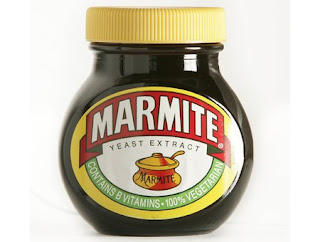Over the weekend, the normally somewhat dry Guardian corrections column contained a bit of a significant whoopsie.
Apparently a piece on morale in the Home Office had to be entirely re-written due to "multiple inaccuracies".
The piece, based on polling by Civil Service World which looked at how workers in Whitehall viewed their Departments, erred in several ways when it sought to portray the Home Office as most demoralised and then link this to the Brodie Clark debacle.
Over to CSW Editor Matt Ross, who had a letter published in Saturday's edition:
"Our research did not examine how "demoralised" or "discontented" civil servants are, nor did it assess how many civil servants departmental staff judge to be "incompetent". The Guardian appears to have confused the answers to various different questions, and repeatedly drawn unfounded conclusions.
The article also links our findings to the Brodie Clark affair, on the basis that the survey reveals poor morale in the Home Office and a reluctance on the part of ministers to pursue innovative policies – but our survey didn't cover morale, and on readiness to take risks in the pursuit of innovation the Home Office came out close to the civil service average.
The figures quoted in fact cover views of the barriers to "involving external stakeholders in policy development".
Meanwhile, while we found Home Office officials were the most negative about their department's capabilities, the findings on the department's management of poorly performing staff fell within the average range.
The Ministry of Defence figures on the management of poor performance were also close to the average, and the results quoted relate to ministry officials' views on the capabilities which the department needs to improve: a higher than average proportion named "recruitment, retention, and performance management" as a priority for improvement.
Our survey did not poll 14,000 civil servants, but 1,400. And I did not provide the quotes attributed to me: some of them seem to be versions of comments by Dave Penman, the FDA union's deputy general secretary, quoted in our own coverage of the survey findings."
So in all, quite a few errors. To be fair to the Guardian it is still the case that the Home Office was the only Department where more respondents felt their Department had "the capabilities required to better meet the challenges facing it", but after that it all gets a bit messy - particularly the quote attribution.
And to be super fair to the paper: how about that correction process? Within a matter of days we got a new article, a correction in the corrections column, and a letter from the wronged party.
The Guardian isn't alone in mangling poll results, and this most definitely isn't the most shocking case, but when sorting out the slip-ups, the paper is perhaps the only one enforcing what should be the absolute minimum in corrective action.
And to be super fair to the paper: how about that correction process? Within a matter of days we got a new article, a correction in the corrections column, and a letter from the wronged party.
The Guardian isn't alone in mangling poll results, and this most definitely isn't the most shocking case, but when sorting out the slip-ups, the paper is perhaps the only one enforcing what should be the absolute minimum in corrective action.
Tweet






